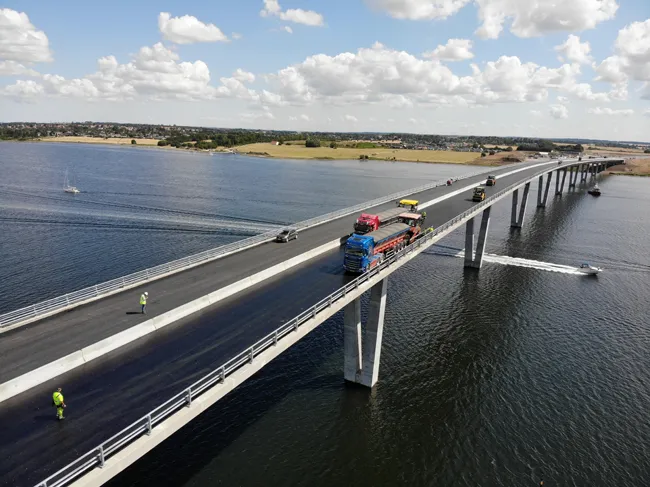IRF Global Credential central to Senegal mission
A program launched in 2017 by the
Escongweni BPH from South Africa responded to the query and following a successful bid submission, was awarded the contract in November 2018 as a sub-consultant to Transecor.
The project entailed the road safety auditing of approximately 3,650km of the existing national road and freeway network. The team assessed the roads at a network level, combining overall findings with site-specific findings that may lead to serious injury crashes and fatalities as no sufficient and reliable historical crash data was available. The network level assessment reviewed each route and identified the potential road safety hazard, followed by a suggested intervention and timeline for implementation. The interventions were then categorised by components of the safe system, catering for the needs of all roads users. Part of the project also entailed the publication of a Road Safety Audit Guide for use by the client for future planning projects. The mission constituted an unprecedented study in the history of Senegal’s Roadway system and will certainly pave the way towards a safer road network for all.
Riaan Steenkamp, lead road safety auditor on the project stated: “This opportunity came about as a result of the IRF’s Global Credential for Road Safety Audit Team Leaders. At first, we thought that it would be a valuable addition to our existing clients in South Africa, but it has now opened a commercial avenue for us. The professional collaboration between ourselves, Transecor, Accidentologue of France and the client who accompanied us in the field has been fantastic as we are able to share local and international experiences related to road safety issues. Without the IRF Global Credential, we would not have been able to work on this mission or even known about it.”
IRF executive vice president Michael G Dreznes commented: “Performing effective road safety audits and inspections at all stages of road design and operation improves safety and demonstrates to the public an agency’s commitment to crash reduction.
However, poorly performed or badly documented road safety audits can have negative effects on safety. Worse yet, the road authority would be using its limited financial resources to conduct these audits with less than acceptable results.
The IRF Global Credential Program remedies this critical gap by offering a pathway for seasoned road safety auditors who wish to enhance their qualifications at home or seek work abroad."
In order to complete the Global Credential program, applicants are required to take an online knowledge qualifying exam and submit a comprehensive application presenting their professional track record and details of the projects they have audited, including a scheme description, illustration of problem identification and solving, and have these attested by a verified third party. These briefs are then evaluated by an independent third party contracted by IRF.
• Additional information on the program is available from <%$Linker:







